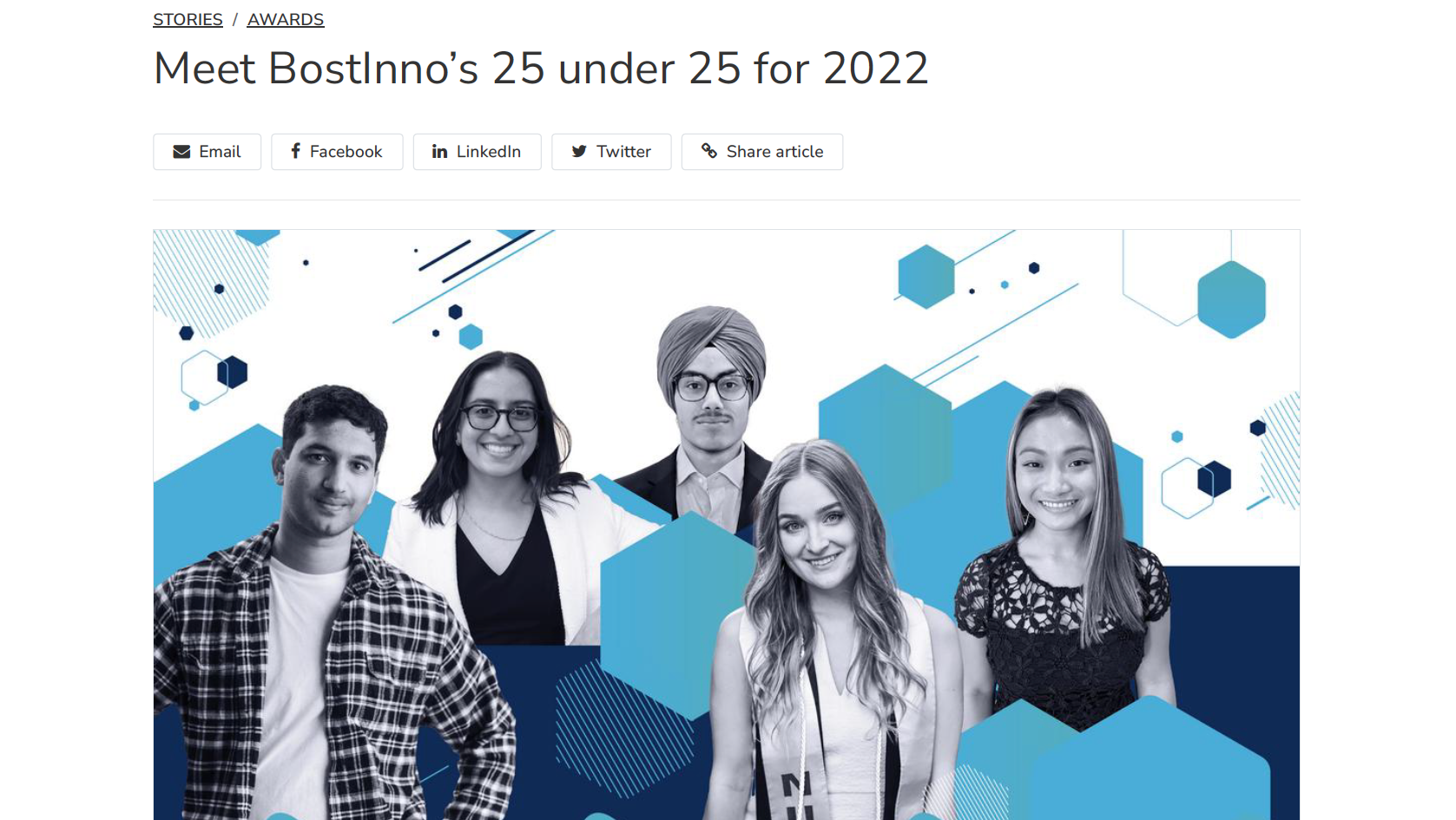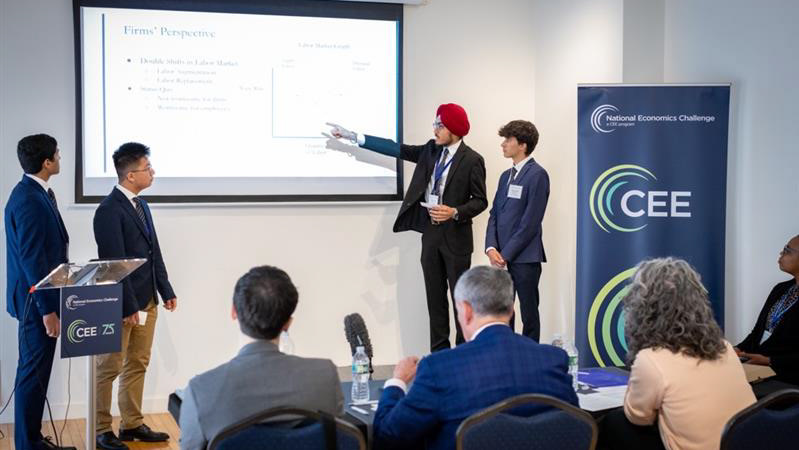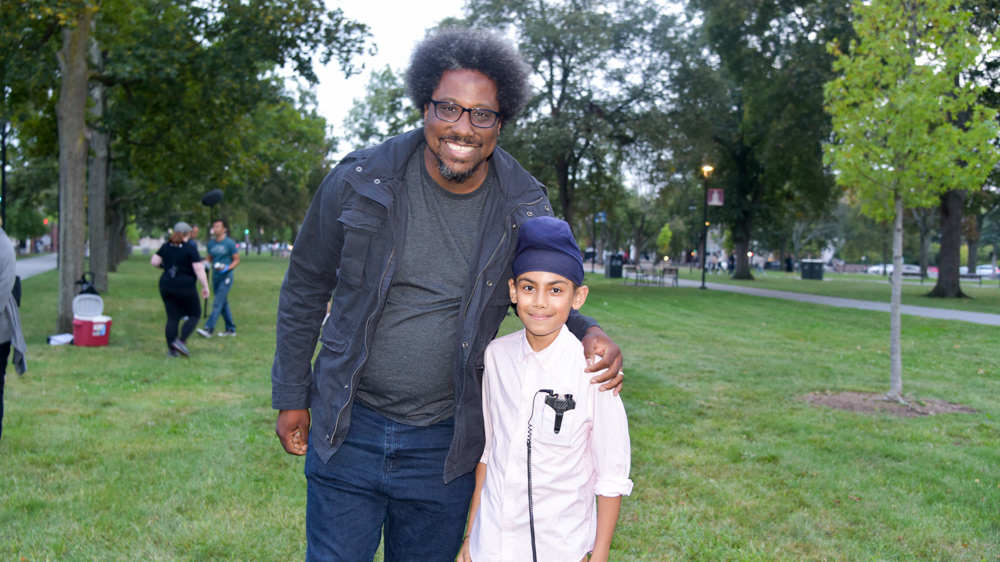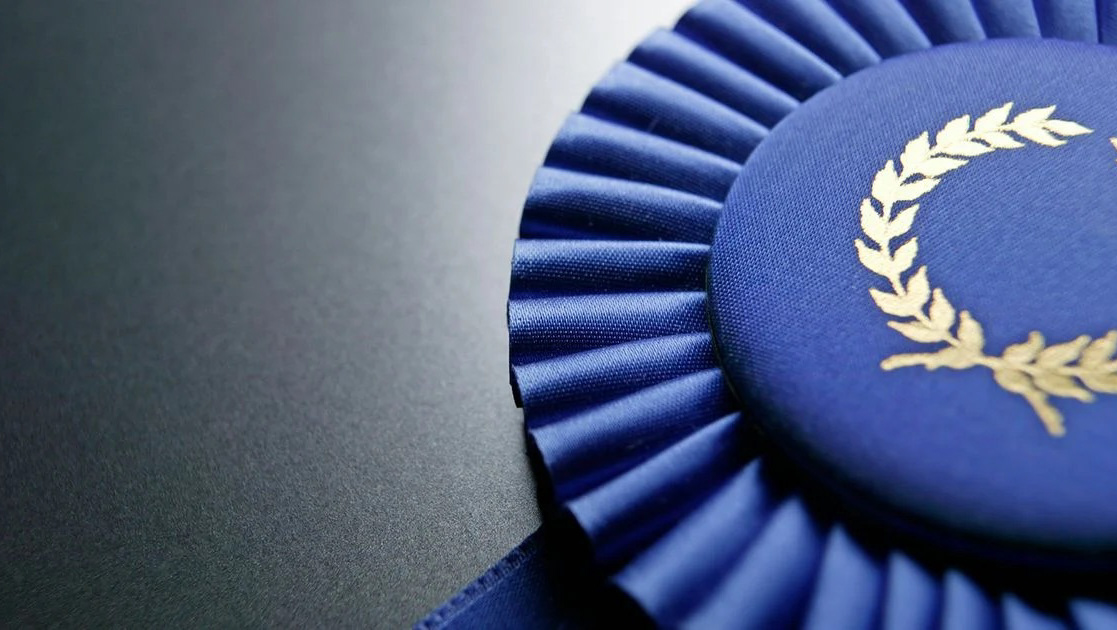GLOBAL MUSIC INITIATIVE
I noticed a gap in Groton's music department, which failed to support many Eastern instruments through its programs. Aiming to bridge this gap, I took action by inviting several fusion artists and ensembles to campus for bi-weekly cross-cultural recitals and holding global music collaborations among students. Our goal was to foster literacy for various non-Western musical traditions. Additionally, we wanted to dispel the stereotype that "Global Music" solely encompasses Eastern music. We actively collaborate with Western instruments to create a truly inclusive musical experience.
I believe that inclusivity in every facet of the Groton community is important, and we were fortunate to receive the official backing of Dr. Mary Ann Lanier, Director of Instrumental Music at Groton School, along with other prominent musicians and educators. Through the Global Music Initiative's efforts, we have also made an impact beyond just the Groton community. Our collaborations have reached prestigious venues like Symphony Hall in Boston and the Festival of Tabla in LA, showcasing the beauty of cross-cultural music to a wider audience. This endeavor has been a significant part of my larger effort to foster inclusivity and diversity in and outside my school's community.
Dilzafer Singh and Alexander Newman playing their "East Meets West" collaboration piece at Symphony Hall
VISITING ARTISTS
We invited notable artists like sarangi player and vocalist Suhail Yusuf Khan, a scholar-performer in Hindustani music, and tabla player Amit Kavthekar, a percussionist who frequently collaborates with Western classical, jazz, and fusion musicians. It was a unique opportunity to showcase Indian classical music to the Groton community in an open setting. Their work parallels my goals to foster inclusivity within the Groton community by embracing diverse musical traditions and promoting cultural exchange.
Suhail Yusuf Khan, Dilzafer Singh, Amit Kavthekar (left to right)
JAZZ COMBO
In high school, I expanded my musical repertoire by delving into the world of jazz at the Groton School's selective ensemble "Riverside Jazz Combo." I have been fortunate to bridge traditions and show my passion for cross-cultural exchange through the Combo (now an "Indo-Jazz" ensemble as my bandmates quip), a fusion of Indian classical music and jazz. My experience at Groton has allowed me to excel academically and provided a platform to amalgamate my diverse interests in Western and South Asian music. By blending the improvisational elements and spontaneity demanded by both traditions, I have forged a unique musical path, creating new compositions for performance while enhancing my musical sensibilities and contributing to Boston's vibrant music scene.
HINDUSTANI CLASSICAL MUSIC
I began my musical journey at the tender age of four. Initially, I immersed myself in the Gurmat Sangeet tradition with the harmonium but soon fell in love with the intricate rhythms of the tablā. Despite not hailing from any direct musical lineage, my commitment and passion led me to learn from tabla maestro Ustad Aditya Kalyanpur of the Pānjab Gharānā. I was accepted under the tutelage of Pt. Anindo Chatterjee, which expanded my mastery.
In my continued exploration, I have committed myself to the jorī, a predecessor of the tablā, in an endeavor to reconnect with my roots and delve deeper into the rich history of the Pānjab Gharānā. As an up-and-coming musician in Boston's vibrant music scene, my interest extends beyond just performing, as I have also contributed to the academic world.
In my continued exploration, I have committed myself to the jorī, a predecessor of the tablā, in an endeavor to reconnect with my roots and delve deeper into the rich history of the Pānjab Gharānā. As an up-and-coming musician in Boston's vibrant music scene, my interest extends beyond just performing, as I have also contributed to the academic world.
FESTIVAL OF TABLA
I was recently invited to perform at the prestigious Festival of Tabla™ in LA this summer. Playing a 30-minute solo at the festival was exhilarating. I had the opportunity to play in front of an extremely knowledgeable audience and collaborate with some extraordinary musicians. The Festival of Tabla is the largest gathering of Indian classical music on the West Coast. It provides a platform for new and diverse artists to present authentic tabla solos and other performances in front of larger audiences. The two-day festival features exceptional artists from all around the world.
PARLIAMENT OF THE WORLD'S RELIGIONS
I had the honor of playing traditional Sikh instruments at the esteemed Parliament of the World’s Religions. My presentation featured the soulful sounds of the dilrubā (tāntī sāz), the rhythms of the jorī, along with the tablā and harmonium. Since its inception in 1893, the Parliament has been dedicated to cultivating harmony among the world's religious and spiritual communities and engaging with global institutions to achieve a just, peaceful, and sustainable world. It was a profound experience to contribute to this mission through the rich musical traditions of Sikh heritage.
PRESERVATION EFFORTS WITH THE JORI
As one of the only remaining exponents of the jori, I have devoted considerable time and effort to preserving this dying art within the Punjab Gharana. My taleem (eductation) under the world's leading jori percussionist, Grammy award-winning Ustad Sukhvinder Pinky, has equipped me with the knowledge and skills to keep this tradition alive.
Accompanying the legendary Bhai Kultar Singh ji on the jori during “Asa Ki Vaar” ("A ballad of hope")
The jori, an instrument capable of producing sounds so regal they take your breath away, traces its origins back to the 18th-century dukkar baaj. It underwent further development in the Punjab region, eventually finding its way into the royal courts and darbars of rajas and maharajas, where it catered to a wider array of musical genres compared to the pakhawaj. As the predecessor to the tabla, the jori played a pivotal role in the evolution of Hindustani percussion.
In recent times, however, the jori has become a rarity, with its memory and intricacies preserved by only a handful of individuals. This decline has pushed the art of playing the jori to the brink, making it a vanishing tradition in danger of being lost to time. Through my dedication and passion, I strive to ensure that the jori continues to resonate, preserving its legacy for future generations.
FIDELITY INVESTMENTS YOUNG ARTISTS COMPETITION
I am incredibly fortunate to have made history by playing the tabla for the first time ever at Symphony Hall as Grand Prize Winner of the Fidelity Investments Young Artists Competition. To receive this honor, I auditioned in Symphony Hall for a chance to perform at a Spring Pops concert with the amazing Boston Pops. Being selected to play the tabla on one of the world's most prestigious stages is a dream come true. See CBS News Boston's coverage of the competition:
Hindustani rhythm is an incredible oral tradition, passed down through generations with its rich rhythms and stories. Recently, I've taken it upon myself to document and share this beautiful art form through my own YouTube channel. It's been an exciting journey, and the channel has grown steadily, now amassing nearly 100k views across all the videos.
VOLUNTEER TABLA & JORI INSTRUCTOR
As a volunteer tabla and jori instructor at my local Gurdwara, I teach 30+ beginner and intermediate students weekly. I am responsible for developing tailored lesson plans that introduce the fundamentals of tabla playing, as well as nurturing the musical and rhythmic skills necessary for advancing in traditional Indian percussion and accompanying Sikh kirtan devotional music.
VOLUNTEER MUSIC RECITALS IN SENIOR HOMES
As part of the Faculty Sponsored Activity (FSA) program, I helped lead the initiative to host recitals at senior assisted-living centers throughout the Groton area. This outreach involved arranging performances featuring a variety of instruments, from tabla to cello, aimed at enriching the lives of senior citizens while fostering an appreciation for Hindustani classical music among the wider Groton community.
MUSIC RESUME 2024



